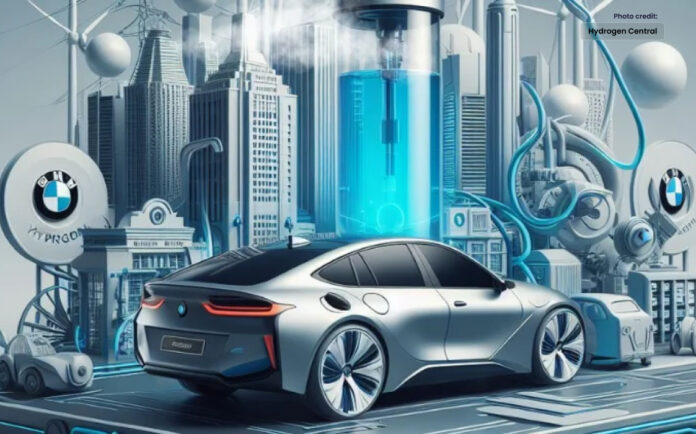BMW says goodbye electric cars & has solved problem hydrogen engines.
The BMW says goodbye electric Cars; it has solved problem of hydrogen engines. Electric vehicle manufacturers hope to dominate market by 2030.
However, hydrogen engines are grabbing a share now. Hydrogen cars are similar to EVs, but they include a cool feature called a hydrogen fuel cell, which only emits water vapour.
This provides them a significant advantage in the quest for the most environmentally friendly ride.
So far, the United States has seen more than 2.5 million EVs on the road, but by mid-2022, only 15,000 hydrogen cars will be on the road, and all of them are in California.
BMW Plans to Roll Out Hydrogen-Powered Cars by 2025:
In the approaching era of transportation, the emphasis will be on high performance, quick refueling, and environmentally friendly solutions.
Hydrogen engines are developing as a potential game changer in the automotive sector, which aligns with these objectives.
Only a few manufacturers, like BMW, are actively developing this technology to pave the road for hydrogen-powered vehicles.
According to BMW CEO Oliver Zipse, hydrogen engines will play an important role in many parts of the world in the long run.
A hydrogen fuel-cell vehicle (HFCV) has a motor similar to a battery-electric vehicle, but it uses a stack of fuel cells instead of a large battery.
These fuel cells mix hydrogen (H2) and oxygen (O2) from the atmosphere to generate water vapour and energy.
Simply put, fuel-cell vehicles are a form of hybrid known as fuel-cell hybrid electric vehicles (FCHEV).
Even though hydrogen is the universe’s most plentiful element, it is rarely discovered in its pure form and is frequently mixed with other elements.
Creating pure hydrogen for automobiles requires an energy-intensive procedure to break down molecules, which are often obtained from fossil fuels such as natural gas.
While hydrogen fuel-cell vehicles resemble electric vehicles (EVs), they have distinguishing characteristics.
Hydrogen engines, like their counterparts, can be refueled rapidly and have a stable driving range regardless of temperature.
BMW iX5 Hydrogen:
BMW is preparing to launch the BMW iX5 Hydrogen, one of three hydrogen-powered vehicles to visit BMW dealerships in 2024.
This eco-friendly SUV idea is intended to set the standard for electric transportation while still delivering excellent performance.
Meeting the ambitious targets for zero carbon emissions in the coming decades would necessitate a variety of renewable energy sources to fulfill the growing demand for electrification by businesses, communities, and countries.
Read also this: Toyota reduced car prices by 13 lakh rupees




